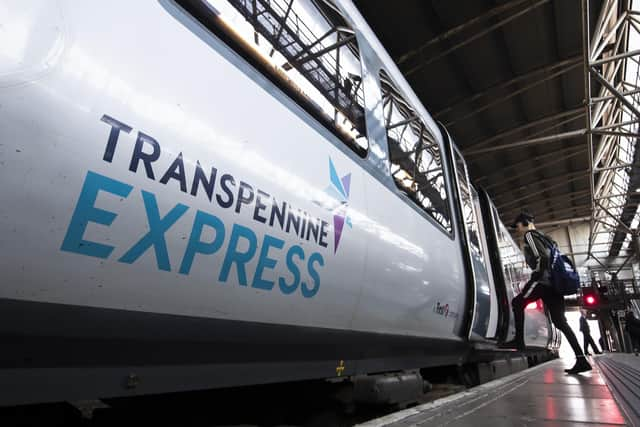FirstGroup stays on track despite strikes and losing TransPennine franchise
The bus and rail firm said it expects “broadly consistent” earnings from its trains business in the year to next March and for its group results to be in line with expectations, although it has cautioned that the “economic and industrial relations backdrop remains challenging”.
FirstGroup saw its TransPennine Express franchise taken over by the Government at the end of May – a decision the firm said was a “huge disappointment”.
Advertisement
Hide AdAdvertisement
Hide AdIt also said the past few years have been “among the most challenging in the history of the UK’s rail industry” as it has grappled with the pandemic and changing passenger habits, as well as industrial action.


FirstGroup’s full-year results showed statutory pre-tax profits falling sharply to £128.7m from £654.1m in the year to March 25 due to the sale of its First Student, First Transit and Greyhound businesses.
It said with this impact stripped out, underlying earnings more than doubled to £82.1m from £36.2m the previous year, which it said was ahead of expectations.
The Aberdeen-headquartered group launched a plan to buy back £115m of shares after offloading businesses in North America.
Advertisement
Hide AdAdvertisement
Hide AdIts results for the past year were boosted by rising demand, with a Government scheme to cap bus fares at £2 helping boost passenger numbers following pandemic disruption.
The Government last month announced it would extend the £2 fare cap until October, with plans for it to rise to £2.50 in November and remain at that level for a year.
FirstGroup said its bus business saw revenues surge to £902.5m from £789.9mthe year before as total passenger numbers jumped by a fifth thanks to recovering demand for public transport.
Underlying earnings in the bus arm rose to £58.4m from £45.2m the previous year.
Advertisement
Hide AdAdvertisement
Hide AdIts First Rail division – which runs around a quarter of the UK rail market – saw underlying earnings leap to £124.8m from £87.8m as passengers also returned to railways.
Chief executive Graham Sutherland said: “The past three years have been among the most challenging in the history of the UK’s rail industry, with it adapting to post-pandemic travel patterns and continued industrial action which has caused significant disruption for rail passengers and businesses across the country.
“We welcomed the recent position articulated by the Secretary of State highlighting that going forward, there will be an enhanced role for the private sector, to reinvigorate the rail industry, drive innovation and attract more customers to the railway.”
On the decision to nationalise the TransPennine Express franchise, he said: “The loss of the contract was a huge disappointment for our team which has worked extremely hard to improve services and to successfully recruit and train more drivers than ever before. The decision has not altered our belief in the important role of private rail operators in the delivery of vital, environmentally friendly transport for customers and communities across the UK,” he added.